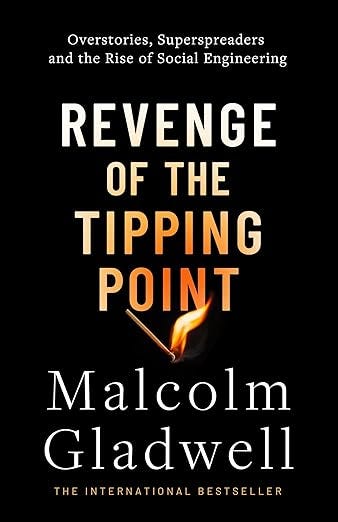“Small actions, when timed just right, can create waves of change that alter the course of history.”
Why in the late 1980s and early '90s did Los Angeles become the bank robbery capital of the world? What is the Magic Third and what does it have to do with racial equity? What do big cats and clusters of teen suicides have in common?
These are just some of the questions Malcolm Gladwell addresses in this new work, which revisits the phenomenon of epidemics and examines the ways in which we have learned to tinker with and shape the spread of ideas, viruses, and trends-sometimes with great success, sometimes with disastrous consequences.
[Note: This summary is NextBigWhat Exclusive - way before anybody else!]
Gladwell shows that-whether in neighbourhoods, schools, zoos, or conference rooms-today's epidemics are no longer singular occurrences, but turbocharged versions of their earlier counterparts and we are more tempted than ever to try and manipulate tipping points for their own ends.
Yet these efforts often come at a cost, creating difficult tradeoffs and unexpected dilemmas. Above all we must recognise our responsibility - as individuals and as a society - to take tipping points seriously if we want to change the world for the better.
With this thought-provoking new book, his most personal yet, Gladwell gives us the insights we need to meet these challenges in innovative ways.
Here’s what Revenge of the tipping point by Malcolm Gladwell teaches you:
Tipping points are everywhere
Ideas, products, and behaviors spread like viruses, and can lead to sudden, dramatic change.
Social engineering can be dangerous
Deliberate attempts to manipulate social dynamics can have unexpected consequences.
We should take tipping points seriously
We need to recognize our responsibility to take tipping points seriously if we want to change the world for the better.
Big changes can be caused by small triggers
Seemingly small triggers can tip the status quo over the inflection point.
We learn more from failures than successes
You can learn a lot from your failures, and the mistakes you made can be important in educating you.
We should walk away from creations
Once you create something, you're no longer in control of it, and you should walk away.
We should think of everyday changes as epidemics
The emergence of fashion trends, the ebb and flow of crime waves, and the rise of teenage smoking can all be thought of as epidemics.











